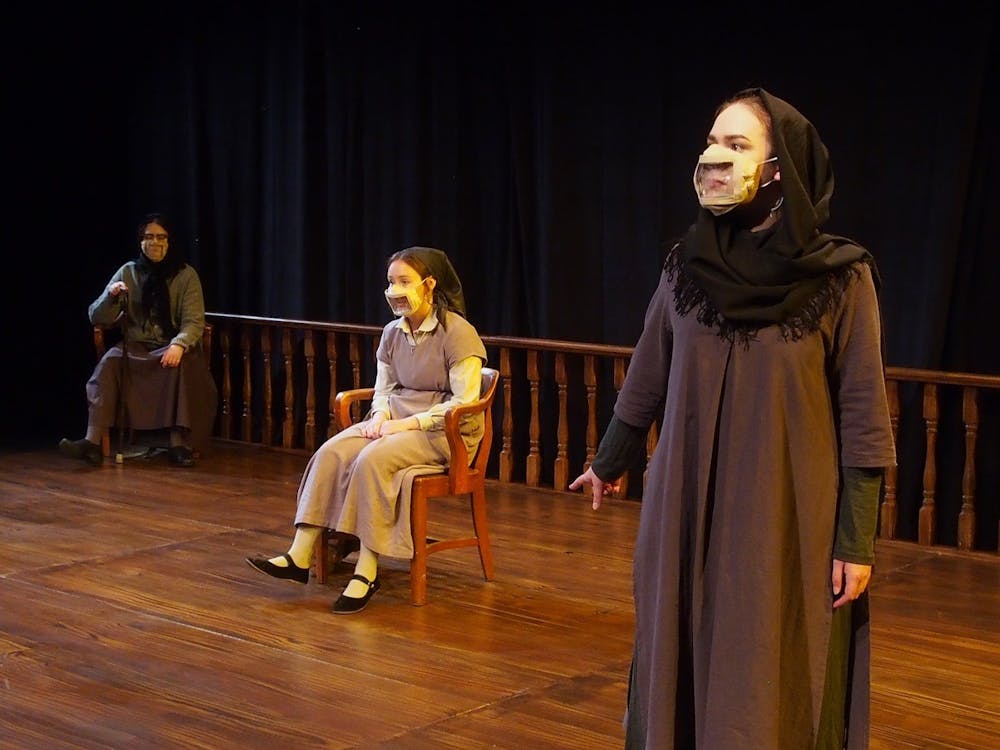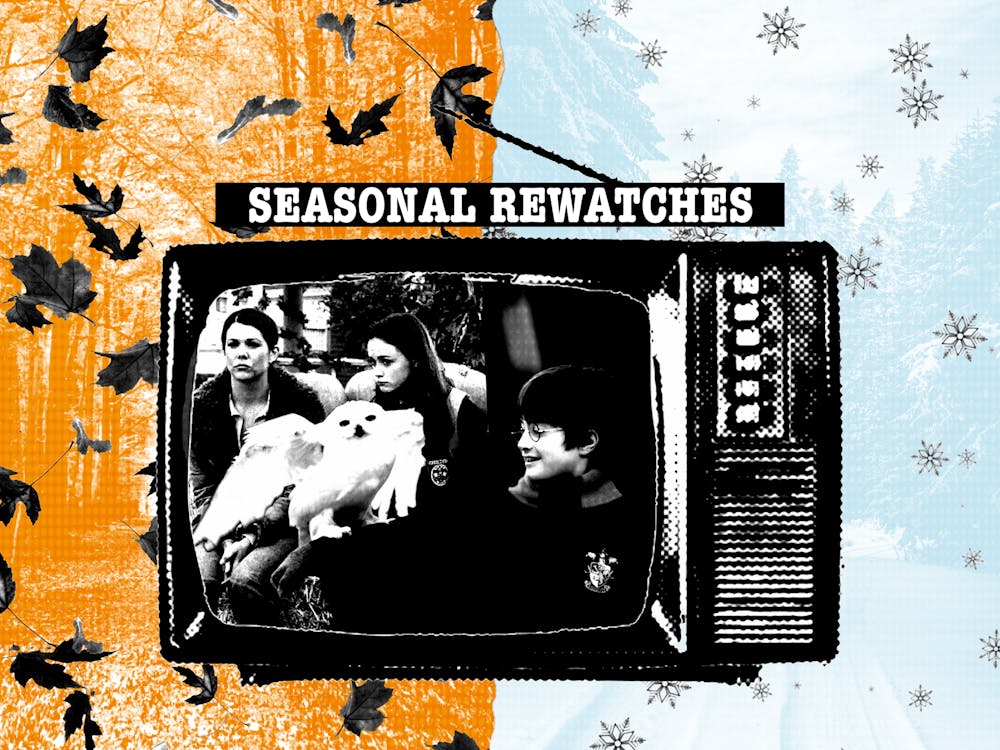Production season finally rolled around, stage lights were turned on and rehearsals for the next masterpiece had begun.
But then, COVID-19 struck and disrupted the entirety of the plan. According to the state guidelines, audiences have not been allowed to attend shows since last spring. But as the theatre saying goes, the show must go on.
Students and professors from Miami’s Theatre Department have had to adapt to this change by wearing masks during performances, maintaining small groups and utilizing virtual technology for both classes and shows.
Jamie Chmielewski, a senior theatre and arts management double major, explains how they have tried different styles of delivering theatre. Film, audio performance and live-streaming performances are all ideas they have explored.
“With the online transition, it is really hard to teach acting in particular,” Chmielewski said. “Acting is such a physical performance. So it is really hard to teach acting online because you cannot engage with the physical body at all.”
Chemielewski admits she feels behind in the sense that she does not get the full experience as her peers did in previous years.
“That’s at no fault of the department. That’s at no fault of Miami University. That’s just the real situation we are in,” Chmielewski said. “It is really hard to be a student at all during this time.”
Not only is the learning aspect difficult, but so is being inclusive and making sure everyone gets to be a part of the experience.
Stephanie Colby, a senior theatre and media & culture double major, expresses the challenge of small group gatherings.
“Not everyone can be involved. We usually have a bunch of theatre students working either as an actor or doing something tech related behind the scenes,” Colby said. “Since most things are online now, it is hard to get everybody involved with the theatre community.”
While there are plenty of disadvantages that come with online learning and small group gatherings, students have tried to look at the little perks.
Chemielewski explains some of her classes actually work better in a virtual setup.
Enjoy what you're reading?
Signup for our newsletter
For example, one class she’s taking is Theatre: Politics and Ethics. Usually this class is about performing ethical-based topics like race, religion or gender and how to navigate these situations.
But with the current circumstances, they also get to have more unique discussions about the ethics of theatre during COVID-19.
As for small group gatherings, Colby mentions how this leaves time for more one-on-one time with the director.
Even the professors are still learning to adjust. Marly Wooster, assistant professor in the theatre department, describes the difficulty in how classes are set up.
“I have two different classes that I’m teaching with both humans in person and online,” Wooster said. “I’m still juggling and figuring out how both groups of students get the attention they deserve.”
Wooster stresses certain areas in which she pays special attention to in the classroom.
“[Students should] feel like their questions are getting answered and that they are a part of what we are doing in the class,” Wooster said.
Both classes and productions are being run differently than ever before which leads to the problem of production rights: the right to process and distribute. This became evident with a production earlier in the semester.
“[Some students] live-streamed [‘Blood Sisters’] to an audience via the CCA YouTube channel,” said Wooster. “We got permission from the playwright, which is always tricky. Streaming rights are not the same as rights to produce for a live audience.”
Fortunately, as Wooster illustrates, this virtual setting worked and still let students have an overall positive experience.
The next event the theatre department will be hosting is the Miami University Digital Fringe Festival, which is an online series of production content.
In order to successfully implement this type of performance, some outside sources had to be acquired including alumni and other Miami academic divisions.
“Every project that is for credit is going to have a response from an alumni who has done work like they are doing,” Wooster said. “The alumni will come back and give students valuable feedback.”
Jada Harris, an associate video producer for Buzzfeed, is among the Miami alums who came back to help. Because Harris has experience with both video editing and theatre, she was able to help the theater department with video production skills while maintaining the theatricality that was originally intended.
Other than alumni, the Miami University Digital Fringe Festival has partnered with Miami academic departments such as music, emerging technology in business + design, kinesiology, architecture and more.
Chemielewski, Colby and Wooster all shared the importance of encouraging others to participate in theatre events or any creative arts program.
“Reach out to your friends, reach out to your peers, reach out to people you know who are not only in the theatre department, but in the College of Creative Arts as a whole,” Chemielewski said. “All of us are not doing well because a lot of that is performance-based or studio-based.”
To individuals in the theatre department, attending the live streamed shows, watching their video performances and making their productions known can have a significant impact.
With this in mind, adding views to the next event, Miami University Digital Fringe Festival, is the best way to support fellow Miamians as well as getting to see entertaining performances. Content is being released or live streamed starting Nov. 5 to Nov. 14.
“Come see the work that our students are doing,” Wooster said. “Share and support that in whatever way you can.”




